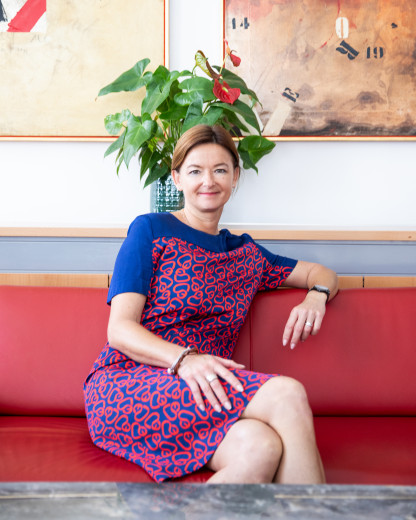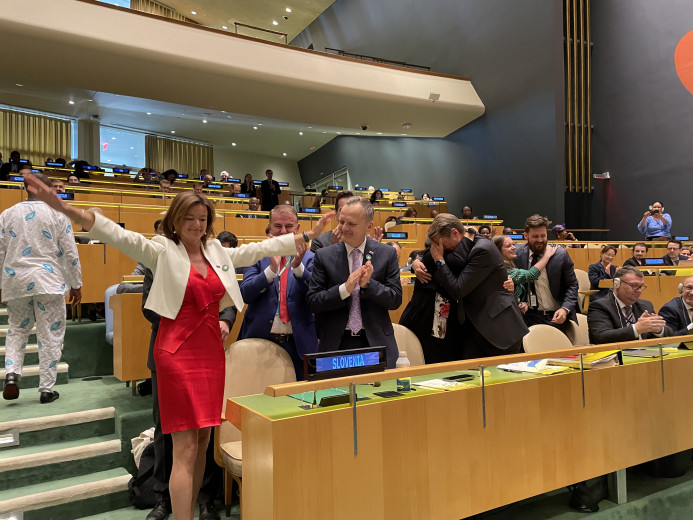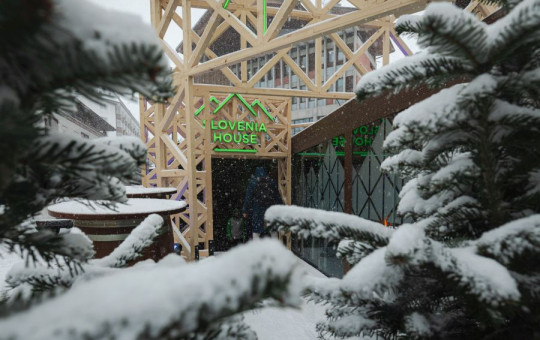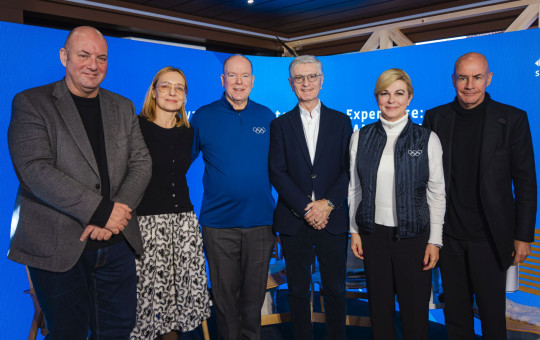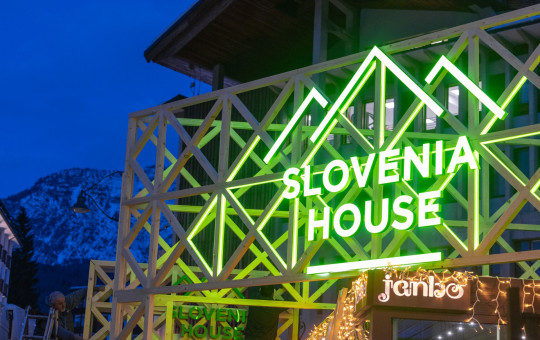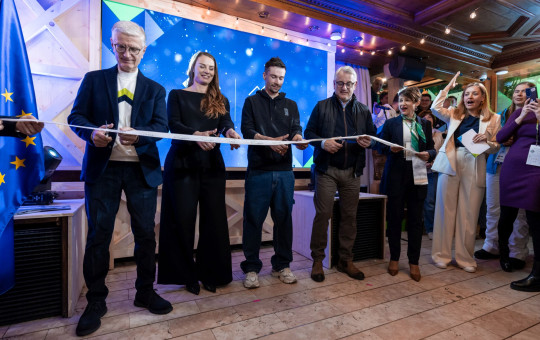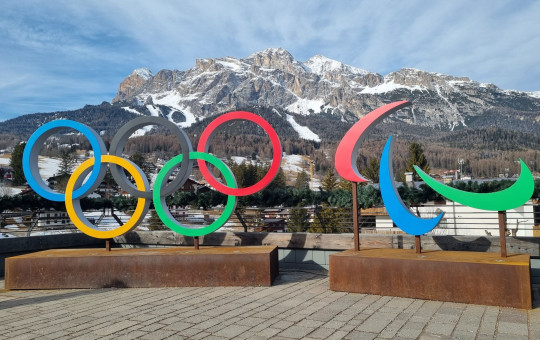Date: 28. August 2023
Time to read: 4 min
Interview with the Minister of Foreign and European Affairs, Tanja Fajon
The recognition of being acknowledged by the entire world because it believes in our peaceful, solidary and constructive foreign policy confirms that Slovenia, as a small UN member with no hidden interests, can contribute to making the world better. To this end, Slovenia has been recognised as a country that helps resolve global problems.
We have crossed the threshold of something great. We have entered the most important body of a world organisation and several questions arise, the crucial one being what power will we have? What will Slovenia strive for after this decisive vote and what will it commit to in the future?
We have won an incredible recognition, an exceptional trust. No one could have imagined that Slovenia would receive so many votes, which shows that it also enjoys trust from the countries with which we haven’t had close partnership relations so far. Being elected a non-permanent member of the UN Security Council is an excellent opportunity for Slovenian economic, cultural and scientific diplomacy as well. I am exceptionally pleased and proud regarding the election, and I thank everyone who has contributed to this to the best of their abilities. I refer to the President of the Republic, the Prime Minister, the President of the National Assembly, the ministers, and all our ambassadors of sport, culture and science.
Which will be the priority tasks?
This is a tremendous opportunity for Slovenia and a privilege, but also a great responsibility. During the brief campaign, we listened to the voices of small nations. There are more than one hundred of them in the UN which eventually cast their votes of support. We find it critical to advocate for the foundations of the UN on the one hand, i.e. peace, international law and human rights, which Slovenia is known for and regarding which it is also consistent in its efforts and, on the other hand, we will emphasise conflict prevention and investing in humanitarian action and development. At this point, I can also highlight the water diplomacy and the natural resource management. As a country of clean water, Slovenia has great know-how and potential in this field, as well as in the fields of women’s empowerment, aid for children, etc. and these are the areas in which Slovenia can excel with its knowledge. The slogan of our campaign for membership in the Security Council was "Building Trust. Securing Future". The world is deeply divided and paralysed. There are conflicts all over the world. The priority is to end the Russian repression in Ukraine as soon as possible and maintain order in the region. A way of communicating and cooperating with Russia will have to be found, as it’s impossible to resolve global challenges without dialogue. Slovenia will serve as the first link in the UN Security Council when addressing the situation in the Western Balkans and the voice of small countries that are highly marginalised and which frequently fail to participate in the decision-making when it comes to global challenges, although there are more than one hundred such countries in the UN.
Will the UNSC membership affect the Slovenian economy?
A strong connection exists there, and the business sector is already asking for support. After many years, we’ve renewed contacts in several parts of the world, which ensures future investment. We travelled to Asia, Latin America and Africa during the campaign. The national conference in Maribor proved to be an exceptional opportunity for further internationalisation of the Slovenian economy and to aid Slovenian companies. Recently, we have visited Indonesia, Vietnam and Central Asia with certain representatives of Slovenian companies. The last trip before the summer will take us to South Korea, where we are also opening an embassy. We’ll seek niche opportunities for connections in the fields where Slovenians are strong. Slovenia’s economy is distinctly export-oriented. Some 15 per cent of our exports are to non-EU countries, which is an acutely low proportion, and we thus want to increase our exports to other continents. Being seated in the Security Council next to the largest countries for two years can position us as a confident and credible country and open up a number of new opportunities.
Even to attaining a more ambitious position.
I believe that Slovenians can be ambitious as well. Too often, we identify ourselves with modesty and the country’s small size. Now is the time to set more ambitious goals. Why should a small country not have ambitious goals? We have the International Research Centre on Artificial Intelligence that operates under the auspices of the UN. This is an outstanding opportunity for scientists and for showcasing our success stories. There are also many small companies with extraordinary accomplishments that are being recognised in the broader sense and all of these successful stories can be exported. I am proud to say that we have clean water, which many envy us, and clean air. Our country is forested and green. These are all opportunities for tourism development and attraction of direct investments. We also want to encourage a highly qualified workforce. There is no-one in the world who could ascribe painful negative past occurrences to Slovenia. It’s a burden free country that is not indebted to anyone. We’re seen as a country that can have an important role in the UN Security Council as a facilitator between divided large forces. The dispute between Russia and Ukraine will certainly be one of the central topics to be addressed. We strive for a prompt ending of the war, peace and stability. A great deal of attention will be dedicated to the war in Ukraine.
How will you ensure human resources for the new role?
We have many ambitions, and we’ll need all the know-how and wisdom. The cooperation between various players and the civil society will be crucial. We are collecting a skills base of people who could be incorporated in this process. I wish for the project to be coordinated with a strong team at the Ministry of Foreign Affairs. A dialogue will be maintained throughout, and we’ll be equally involved in the project from the bottom up, since this is a national project that is opening numerous new opportunities. There’s also the diplomatic team in New York, in which the number of diplomats is already growing. I want to have a strong team. In short, I wish to utilise the potential we have.
-
"We are collecting a skills base of people who could be incorporated in this process. I wish for the project to be coordinated with a strong team at the Ministry of Foreign Affairs." Photo: Ministry of Foreign and European Affairs archives
-
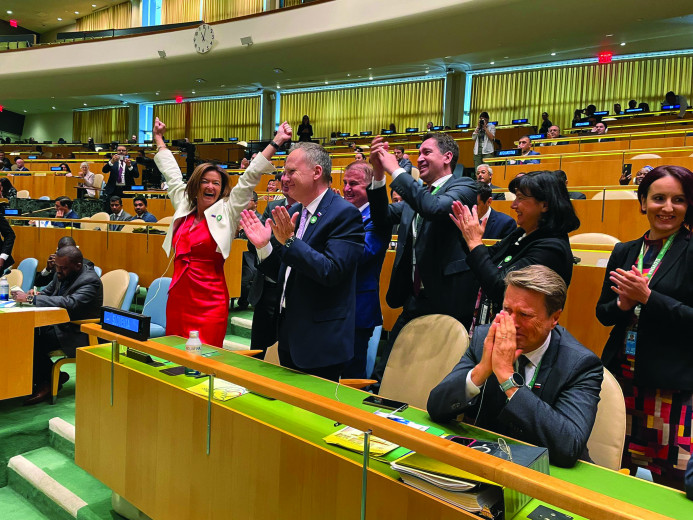 There’s also the diplomatic team in New York, in which the number of diplomats is already growing. Photo: Ministry of Foreign and European Affairs archives
There’s also the diplomatic team in New York, in which the number of diplomats is already growing. Photo: Ministry of Foreign and European Affairs archives
The Bled Strategic Forum will be held at the end of August. What will be its highlights this year?
In terms of visitors and discussions, the Forum exceeded all expectations last year. This is the largest diplomatic event to address numerous social issues, combining politics, the academic sphere and the civil society. We were surprised by the number of attendees last year. This year, we expect the interest to be even greater. The activities relating to the event have been underway throughout the year. We hosted more than 2,000 attendees at last year’s Forum, which was an enormous challenge for our ministry. These included some 80 high-level guests who attended 25 discussions. This year’s BSF will particularly focus on ensuring global security, while solidarity for global security will be the common thread, i.e. solidarity, security and sustainability. Many events will be organised, and we expect many guests; the first invitations have already been sent. I have great expectations from the Forum, too. It denotes a strategic consideration for the entire region. We will contemplate questions relating to the response to present-day challenges and look ahead to the future. From a regional conference, we are developing into a global one and subsequently also invite guests who are active on a global platform. The aim is to ensure the permanent continuity of this two-day meeting in line with other events organised in our neighbourhood. Great emphasis will also be placed on young people and cooperation with other ministries. All in all, it’s a nice story.
Slovenia will intervene in the fishermen’s case against Croatia at the European Court of Human Rights. It will offer its assistance in the protection of fishermen who are the victims of Croatia’s non-recognition of the arbitration award.
In March, the European Court of Human Rights informed us that three applications by Slovenian fishermen were served on Croatia, which were filed against Croatia relating to the alleged violations of the European Convention on Human Rights. The Ministry of Foreign and European Affairs commends the fact that the Court recognised the applications by Slovenian fishermen as admissible and that it would decide on their merits. At its session in June, the Government adopted the decision that it would intervene as a third-party mediator. By doing so, we are sending an important signal to the fishermen that we will be on their side in all the proceedings that are underway.
With 153 votes of support in the first round of voting, Slovenia was elected a non-permanent member of the Security Council of the United Nations for the 2024–2025 term at the UN General Assembly in New York. In the race for the seat in the Eastern European Group, it defeated Belarus, which received 38 votes.

